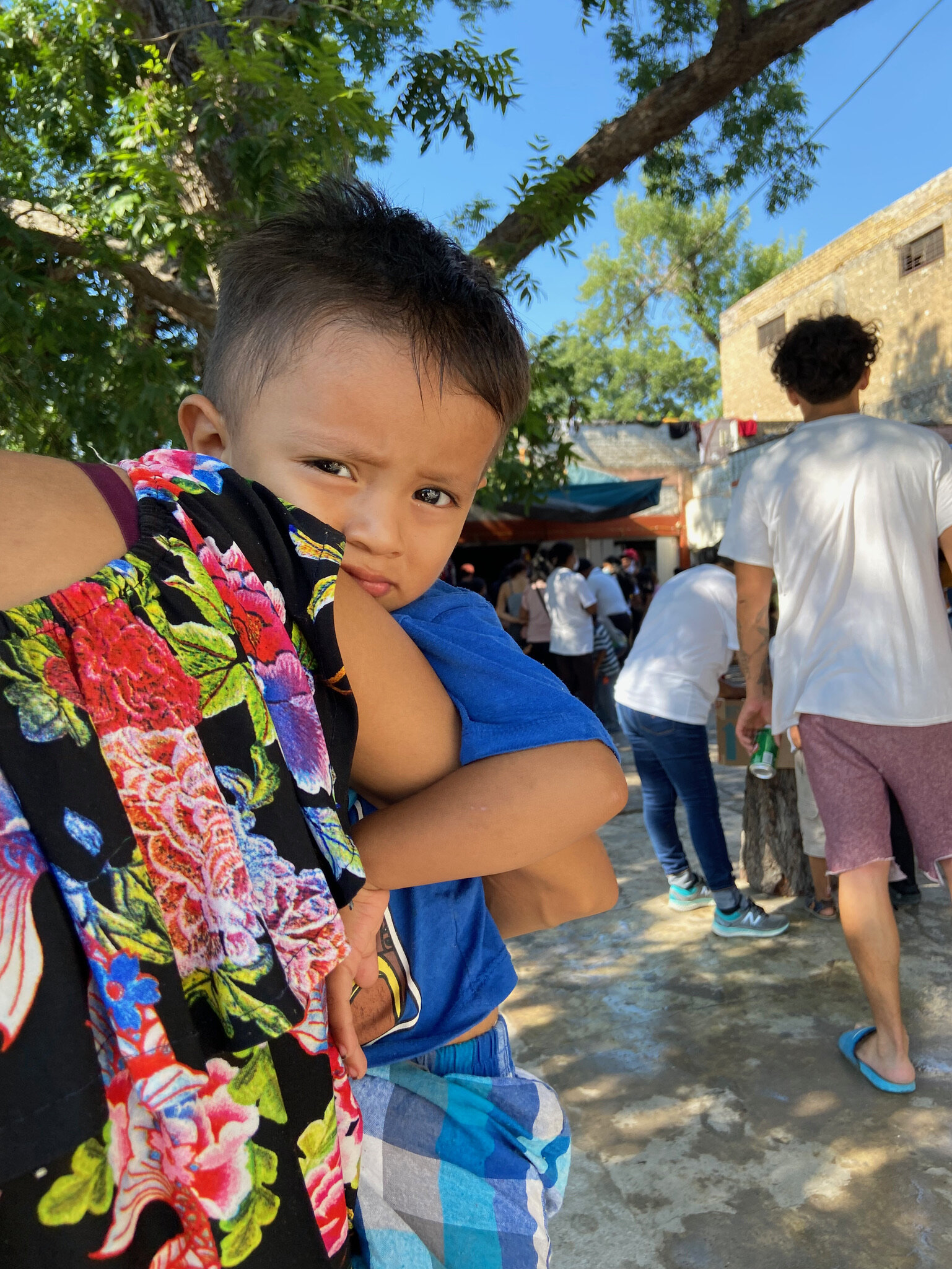Looking at refugees, but seeing Jesus
Pastor Juvenal González in Tijuana
By Elket Rodríguez
“Look at me,” Jesus whispered every day as I participated in a recent tour of Fellowship Southwest’s immigrant relief network. Many times, I saw him on the U.S.-Mexico border.
• I saw Jesus in the anguished eyes of a deported veteran, feeling betrayed.
• I saw Jesus scrambling to scavenge used clothes thrown into the street by Mexican residents.
• I saw a 15-year-old Jesus waiting for the right moment to climb the border wall near the beach in Tijuana, Mexico.
• I saw an elderly Jesus sleeping under a bridge on a hot morning.
• I saw an 11-year-old Jesus sitting on a sidewalk, considering his dismal future, wondering why he couldn’t attend school.
• I saw a tortured Jesus—desperate for someone to value him—demonstrating his resiliency, recounting his skills and offering the labor of his hands in search of honor.
• I saw a broken-hearted Jesus, weeping over the murders of a son and spouse by the cartels.
• I saw a teary Jesus, lamenting his kidnapped oldest daughter while consoling her 7-year-old little sister, who wants to commit suicide.
• I saw Jesus in the faces of indefensible children.
• I saw Jesus in the shame of raped women.
• I saw Jesus in the desperation of hard-working men, unable to find jobs.
• I saw Jesus in the uncertainty of countless young men and women who long to be productive.
But I also saw children of God providing ministry for Jesus’ sake.
I saw tired Jesuses in pastors Eleuterio González, Juvenal González, Carlos Navarro, Lorenzo Ortiz, Israel Rodríguez, Rosalío Sosa and Jorge Zapata. I saw Jesus in dozens of volunteers and advocates, who lift the voice of migrants and dignify them.
I watched common humanity disintegrate theological differences. I touched the boundaries of ministry preparation. I viewed the blind spots of corporate American Christianity. I wondered if the kingdom of heaven—its ministry and mission—is exercised on the streets instead of in temples.
I also saw Satan manifest sin in sustained injustices that produce systemic pain. I saw the devil dehumanize entire families and communities. I heard Pharisees corrupt the gospel, seeking to exalt money, power, pride, traditions, heritage and nationalities above God’s kingdom. I wondered if our riches blind us so we cannot see the relationship between our sin and our neighbors’ suffering.
Beyond what I saw, here is what I learned: Migrants don’t want our money, our missions or our charity. Migrants want us to recognize, proclaim and defend their dignity, even when they seem helpless. They want people of God to reassure them they are worthy of being loved, empowered and preserved. They cry for us to see Jesus in them.
If we are not willing to pressure our elected officials on behalf of thousands of Jesuses waiting at our southern border, all other refugee engagement is pointless. Advocacy is the least—not the greatest—thing we can do.
Multitudes of these refugees are Christians themselves. So, if the blood of Christ and our shared sisterhood and brotherhood can’t compel us to action, nothing can. The Holy Spirit can reflect Christ’s character in us, but if we refuse to participate, the cause is lost.
Whether or not they are Christians, all these refugees are our neighbors. In the parable of the Good Samaritan, Jesus placed eternal judgment upon how the healthy treated the injured. Today, God judges whether we cross over to bind the wounds of broken migrants who have suffered numerous blows from multiple enemies. We—not they—stand in judgment for what happens next.
Many preachers urge us to “look at the cross.” But on the border, Jesus kept reminding me to look at him in the faces and bodies of refugees. He insisted on welcoming him, defending him and advocating for him—in them.
Our reaction is relevant. I will lift my voice for the stranger. Will you speak up for the refugee seeking asylum among us?
If you would like to support Fellowship Southwest’s ministry to immigrants on the U.S.-Mexico border, click here.
If you want to become an immigration advocate, click here.
Elket Rodríguez is Fellowship Southwest’s and the Cooperative Baptist Fellowship’s immigrant and refugee advocacy and missions specialist.


